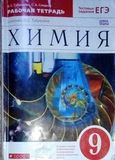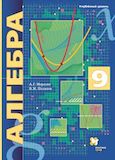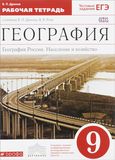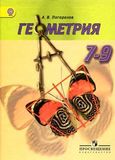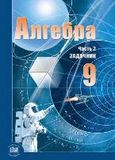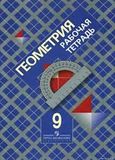Стр.31 Unit 2 Великие побеги ГДЗ Комарова Ларионова 9 класс
Грамматика
Past simple и past continuous
past simple
• Мы используем past simple, чтобы говорить о вещах, произошедших в прошлом.
• Со всеми лицами согласуется одинаково.
• Мы образуем отрицательные предложения в прошедшем времени с помощью didn't и инфинитива без частицы to.
They didn't land on the runway. (Они не приземлились на взлетно-посадочную полосу.)
• Мы образуем вопросы в прошедшем времени с помощью Did и инфинитива без частицы to.
Did he open the door? (Он открыл дверь?)
• В кратких ответах мы не повторяем смысловой глагол.
past continuous
• Мы используем past continuous, чтобы описать действие в процессе в прошлом.
• Мы образуем past continuous следующим образом: субъект + be + глагол + -ing.
They were flying very low. (Они летели очень низко.)
• В вопросах порядок следующий: be + субъект + глагол + -ing.
Were they standing on the rescue raft? (Они стояли на спасательном плоту?)
• В кратких ответах мы не повторяем глагол + -ing.
Yes, they were. V Yes, they were standing. X
past simple vs past continuous
• Мы часто используем past simple и past continuous в одном предложении.
• Мы используем past simple для кратких действий. Мы используем past continuous для более длительных действий. Past simple описывает событие, которое происходит во время более длительного действия в past continuous.
• Мы, как правило, используем when перед придаточным в past simple и while перед придаточным в past continuous.
Flight 1519 was taking off from LaGuardia airport when it hit a flock of birds.
(Рейс 1519 взлетал из аэропорта LaGuardia, когда столкнулся со стаей птиц.)
While Flight 1549 was taking off from LaGuardia airport, it hit a flock of birds.
(Во время взлета рейса 1549 из аэропорта LaGuardia он столкнулся со стаей птиц.)
Произношение: окончания глаголов в past simple
• Произношение окончаний правильных глаголов в past simple меняется в зависимости от написания глагола:
- Когда глагол оканчивается на глухой звук, окончание -ed произносится как [t]: look -> looked (смотреть -> посмотрел)
- Когда глагол оканчивается на звонкий звук, окончание -ed произносится как [d]: fail -> failed (терпеть неудачу -> потерпел неудачу)
- Когда глагол оканчивается на -t или -d, окончание -ed произносится как [id]: land -> landed (приземляться -> приземлился)
• Для неправильных глаголов, смотрите список неправильных глаголов, стр. 163.
Present perfect
утвердительные предложения
Я / Ты / Мы / Они
Он / Она / Оно
пришел/пришли/пришла/пришло сюда.
отрицательные предложения
Я / Ты / Мы / Они не
Он / Она / Оно не
так испугался/испугались/испугалась/испугалось.
вопросы
Я / Ты / Мы / Они
Он / Она / Оно
выжил/выжили/выжила/выжило?
краткие ответы
Да, я / ты / мы / вы / они выжил/выжили. / Нет, я / ты / мы / они не выжил/выжили.
Да, он / она / оно выжил/а/о. / Нет, он / она / оно не выжил/а/о.
• Мы используем present perfect, чтобы говорить об опыте в прошлом, когда мы не упоминаем точное время.
• Мы используем субъект + has / have + причастие прошедшего времени.
• Для неправильных причастий прошедшего времени, смотрите список неправильных глаголов, стр. 163.
• Мы часто используем ever, чтобы задавать вопросы об опыте в прошлом. В кратких ответах мы не повторяем смысловой глагол.
Have you ever been to a historical re-enactment? Yes, I have. / No, we haven't. (Ты когда-нибудь был на исторической реконструкции? Да. / Нет.)
• Мы часто используем never с present perfect, чтобы говорить об опыте, которого у нас не было. Мы используем субъект + has / have + never + причастие прошедшего времени.
He's never felt so afraid. (Ему никогда не было так страшно.)
Приведем выдержку из задания из учебника Комарова, Ларионова 9 класс, Русское слово:
Grammar
Past simple and past continuous
past simple
We use the past simple to talk about events in the past.
All persons are the same.
We make negative sentences in the past with didn't and the infinitive without to.
They didn't land on the runway.
We make questions in the past with Did and the infinitive without to.
Did he open the door?
in short answers we don't repeat the main verb.
past continuous
We use the past continuous to describe an action in progress in the past.
We form the past continuous with subject + be + verb + -ing.
They were flying very low.
in questions, the order is be + subject + verb + -ing.
Were they standing on the rescue raft?
in short answers, we don’t repeat the verb + -ing:
Yes, they were. Yes, they were standing.
past simple vs past continuous
We often use the past simple and the past continuous in the same sentence.
We use the past simple for short actions. We use the past continuous for longer actions. The past simple describes an event that happens during a longer action in the past continuous.
We normally use when before the past simple clause and while before the past continuous clause.
Flight 15-19 was taking off from LaGuardia airport when it hit a flock of birds.
While Flight 1549 was taking off from LaGuardia airport, it hit a flock of birds.
Pronunciation: past simple endings
The pronunciation of past simple regular verbs changes, depending on the spelling of the verb:
When the verb ends in an unvoiced sound, the -ed ending is pronounced [t]: look -> looked
When the verb ends in a voiced sound, the -ed ending is pronounced [d]: fail -> failed
When the verb ends in -t or -d, the -ed ending is pronounced [id]: land -> landed
For irregular verbs, see irregular verbs list, p163.
Present perfect
affirmative
I / You / We / They’ve (have)
He / She / It’s (has)
come here.
negative
I / You / We / They haven’t (have not)
He / She / It hasn’t (has not)
felt so afraid.
Questions
Have
Has
I / you / we / they
he / she / it
survived?
short answers
Yes, I / you / we / you / they have. / No. I / you / we / they haven't.
Yes, he / she / it has. / No, he / she / it hasn't.
We use the present perfect to talk about experiences in the past, when we don't mention the exact time.
We use subject + has / have + past participle.
For irregular past participles, see Irregular verbs list, p163.
We often use ever to ask questions about experiences in the past. In short answers we don't repeat the main verb.
Have you ever been to a historical re-enactment? Yes, I have. / No, we haven't.
We often use never with the present perfect to talk about experiences we have not had. We use subject + has / have + never + past participle.
He's never felt so afraid.
Популярные решебники 9 класс Все решебники
*размещая тексты в комментариях ниже, вы автоматически соглашаетесь с пользовательским соглашением
